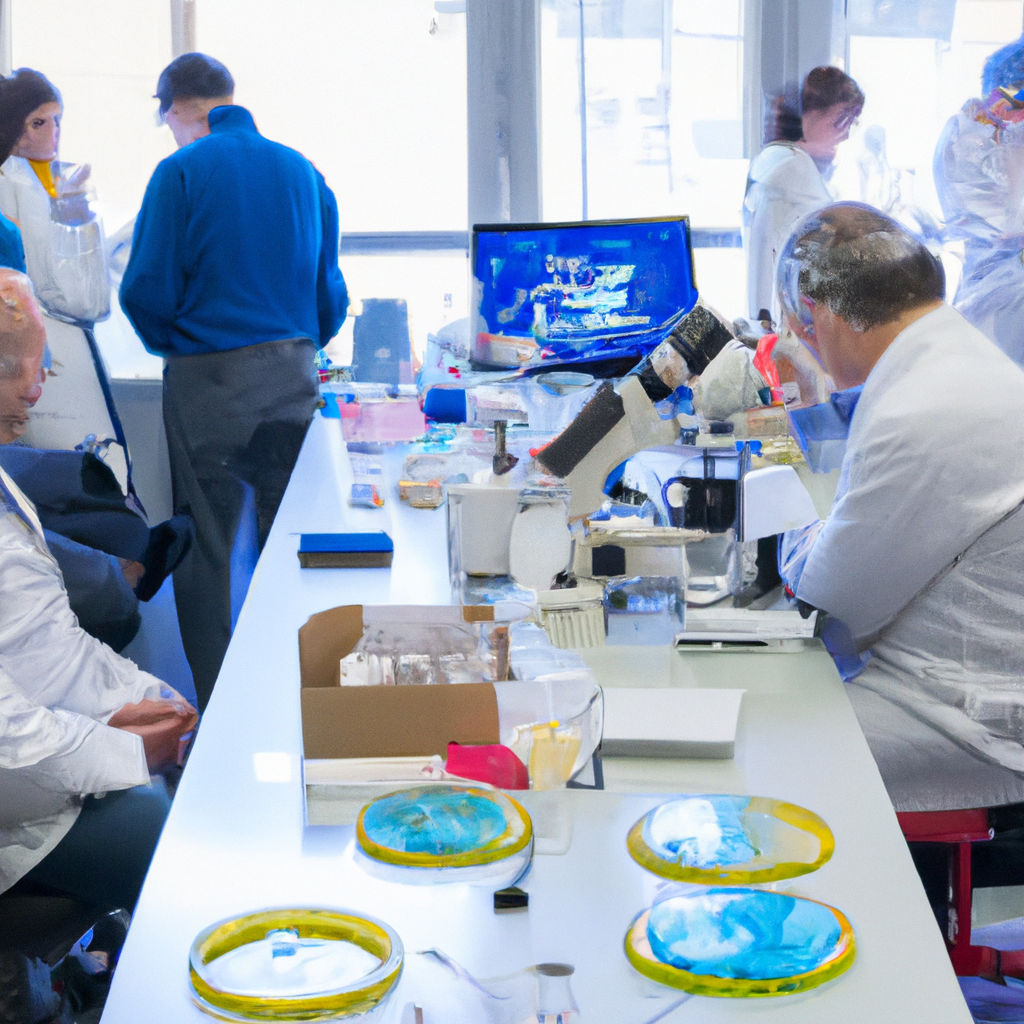
**Article Breakdown:**
– Mini-brains, the esteemed organoids, are here, ready to ultimately replace your full-sized thinking helmets … with a hint and a dash of quirkiness.
– These brain organoids are grown in a lab, from human cells, functioning very similarly to our actual brains.
– Stem cell research has basically birthed these mini wonder-nuggets of intelligence.
– This research could potentially eliminate the need for animal testing in medical research.
– Personalized medical treatments could be ushered in with the advent of these petri dish darlings.
– However, there’s a heap of ethical debates simmering, questioning the right to grow human brains in a lab.
Mini-Brains – The Next Big Thing in Tech?
As if 3D-printed pizza and smart shoes weren’t enough to leave us wide-eyed, now science has proffered up lab-grown mini-brains! Yes, your burlap sack of blood, fluids and 1.4 kilograms of grey matter, squishing around in your skull, can now be downsized. Say hello to the newest creation from the realm of stem cell research – the sensational mini-brains or “brain organoids”! Grown from human cells, these organoids do a pretty neat imitation of their full-size, much more complex cousins.
Lab-Grown Intelligence Nuggets
These mini-brains are not the shrunken remnants of some terrible accident involving your third-grade science teacher and a ray gun. Rather, they’re built from scratch, from human cells, in the pristine environment of an ultra-advanced lab. They develop and grow, much like the regular mush we carry in our heads, enabling scientists to study the dynamics of neural development without resorting to the controversial realm of animal testing.
A Better Future for Our Furry Friends?
The brain organoids pose a ray of hope for our little furry friends who’ve for long served science in rather unfortunate ways. Before you let your imagination run wild with scenes from “Planet of the Apes,” we’re talking about ending the need for animal testing in medical research, of course. PETA, you might want to start blowing kisses at this innovation!
The Dawn of Personalized Medication?
Mini-brains might just be the personal pharmacists we’ve all been dreaming of. From these brain organoids, personalized treatments for diseases could be crafted. Imagine a world where treatments aren’t ‘one-size-fits-all’, but are tailored to your individual biology. Sounds like your bespoke suit, just for your gray matter!
Yet, A Heap of Ethical Quagmire
Despite the giant leaps in medical research, these organoids have stirred, there’s a simmering pot of ethical debates. ‘Playing God’, ‘creating life in a lab,’ – dramatic, right? Yet these debates raise real concerns about the lines science should respect in its quest for advancement.
Nevertheless, The Future Looks Promising!
Though laden with ethical dilemmas, the advent of brain organoids is undeniably fascinating. They’re opening new avenues for understanding our notorious and complex thinking helmets. With much research to unfold, they might just be the future of neurology or even personalized medicine.
Hot Take
In conclusion, we’ve just given you a tour of tomorrowworld, where mini-brains are the new stars. With the potential to revolutionize medical research, weaken our reliance on animal testing, and even offer personalized treatment, they are promising. Yes, the ethical implications are thick as pea soup and hotly debated. But let’s remember: science dangles at the edge of ethical dilemmas, walking a tightrope between advancement and respecting life.
These brain organoids don’t have to battle it out for worth; they already prove their significance by putting a stop to animal testing. As we pour ourselves into the era of personalization, these lab-grown mini brains stand firmly in that arc, promising treatments tailored to individual needs. So, are we stepping closer to a world where medicine is no longer a guessing game? With these brainy marvels in view, we may just be about to. Hold onto your (shrinking) hats, folks!